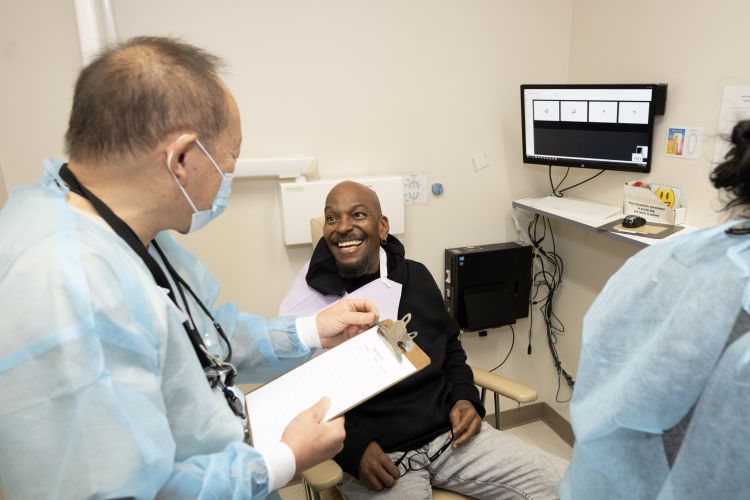Dozens of volunteers from University of the Pacific’s Arthur A. Dugoni School of Dentistry provided free urgently needed dental care and screenings to more than 100 people at a recent two-day clinic, treating some for the first time in years.
The annual “Give Special Kids a Smile” and “Give Vets a Smile” events were held Feb. 3-4 at Dugoni’s residency dental clinic, the Union City Dental Care Center, in collaboration with the Southern Alameda County Dental Society. Volunteers treated children and adults with developmental or physical disabilities and military veterans.

“We’re so glad we found this clinic because our clients who have developmental disabilities have a very hard time finding dentists who are patient with them,” said Judy Miramontes, who works at an intermediate care facility in Freeport.
Nearly $70,000 in services were provided, from teeth restoration and extraction to fillings and denture repairs. Patients also received free oral health kits.
Leane Perry brought her adult son Joshua who had been unable to see a dentist, largely due to the pandemic.
“This is the first time he’s had a cleaning in years, and we got a tooth fixed. Everyone was patient. It was an amazing experience,” she said.
A therapy pony and therapy dogs were on hand to put patients at ease. Dentists used the animals to demonstrate procedures and sit with patients during exams.
“Especially for kids who have an intellectual disability, it’s a very emotional experience because they don’t process things the same way,” said Clinic Director Dr. Debra Woo. “The therapy animals soften the atmosphere. Kids who are withdrawn start interacting with the animals, then they sit in the chair and the animal sits next to them in the operatory. It’s an amazing transformation.”
The Dugoni School of Dentistry began holding the clinics in 2010 as part of the national “Give Kids a Smile” initiative started by the American Dental Association. The school also provides services year-round at discounted rates and takes insurance many providers do not accept.
“We do that because we feel like we are the safety net for this segment of the population who has no access to care other than providers who only take this kind of insurance,” Woo said. “If you could go to the dentist every six months, it would prevent a lot of problems. Unfortunately, people don’t come until there’s a crisis, so we try to make dental care accessible.”


